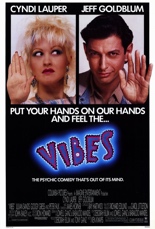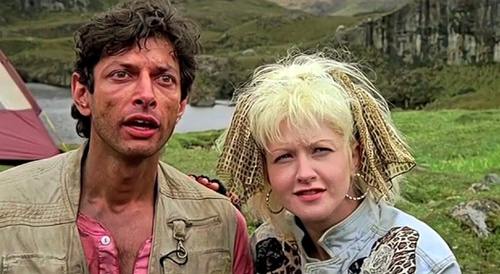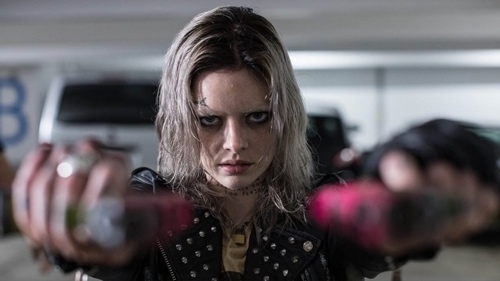
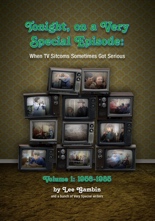 If you can’t look at a bottle of vanilla extract without thinking of Tom Hanks, I get it. Same. And have I got a book for you!
If you can’t look at a bottle of vanilla extract without thinking of Tom Hanks, I get it. Same. And have I got a book for you!
Every book bearing Lee Gambin’s name on the cover is worth purchasing, but Tonight, on a Very Special Episode: When TV Sitcoms Sometimes Got Serious — Volume 1: 1957-1985 is the only one whose mere introduction gave me goose bumps. Those initial pages aim to define what constitutes a “Very Special Episode” (hereafter abbreviated as “VSE”), but also weave a big, warm blanket of nostalgia for members of a certain generation or two: those weaned on afternoon reruns of sitcoms older than we were, and whose evenings were determined — if not outright dictated — by the grids in that week’s TV Guide.
As Gambin (We Can Be Who We Are: Movie Musicals from the 1970s) explains, the VSE represented a break from the show’s norm to present something different, whether a backdoor pilot, a series finale or a character’s life milestone, from the birth of the baby to a wedding or funeral. But more often than not, the VSE saw a seismic shift in tonality, however temporary, to tackle a Big Social Issue; the laugh track was given seven days’ rest so the creative powers could address not-funny situations of real life, like getting cancer, hating minorities, contracting the herp — you know, that sort of thing.
Nowadays, an entire network series can be built upon such a single hot-button issue (yes, you, Law & Order: Special Victims Unit), but in more sheltered times, devoting a half-hour to STDs or ICBMs was considered a risky movie best left for parents, schools and churches to handle quietly … if handled at all, which may account for why the boob tube — increasingly the nation’s babysitter — stopped every now and again to take up the cause, to face reality with bravery, to stand up for what’s right, to fight the good fight, to give Barney Miller a werewolf.
Gambin’s overview ticks through some of the greatest hits, conjuring memories of treasured shows and particular VSEs I must have seen four or more times growing up. I remember learning about child molestation from Diff’rent Strokes, cerebral palsy from The Facts of Life, blackface from Gimme a Break!, speed (and the alcoholic properties of the aforementioned vanilla extract) from Family Ties and media manipulation from The Brady Bunch. (That Jesse James was one bad hombre. Who knew? Mike and Carol, of course.)
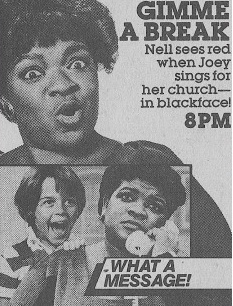 All those and more are here — many, many more: 124, if I counted correctly. Each episode in Tonight, on a Very Special Episode merits a stand-alone essay from Gambin or one of his contributors. (Bittersweetly, one is the recently departed and much-loved Mike McPadden, author of Teen Movie Hell, who takes the good and takes the bad of a couple Facts of Life episodes.)
All those and more are here — many, many more: 124, if I counted correctly. Each episode in Tonight, on a Very Special Episode merits a stand-alone essay from Gambin or one of his contributors. (Bittersweetly, one is the recently departed and much-loved Mike McPadden, author of Teen Movie Hell, who takes the good and takes the bad of a couple Facts of Life episodes.)
The contents — which, honestly, could really use a detailed table of just that — include an expected surfeit of Norman Lear creations, namely All in the Family and Maude, both giants in the VSE field. As enlightening as the pieces on those VSEs are, I found the best to be about half-hours I somehow missed or forgot.
Four of these essays stand out as tops in terms of being informative, critical and passionate, all while detailing and deconstructing scenes that make one think, “This actually aired?!?“:
• the Beav palling around with a booze-soaked hobo (Leave It to Beaver);
• Tabitha and a Black playmate switching races, much to the chagrin of Darren’s racist client (Bewitched);
• Fred and the boys unknowingly auditioning for a porno movie (Sanford and Son);
• and Monroe being repeatedly raped by two obese women (Too Close for Comfort).
The Bewitched one won awards; Comfort, yanked from syndication.
From examinations of M*A*S*H to transmissions on WKRP, Gambin and friends pour their hearts into their work, because these shows mean as much to them as they mean to you. If Tonight, on a Very Special Episode leaves you wishing it didn’t end in 1985, great news: BearManor Media has simultaneously published Volume 2: 1986-1998, so The Golden Girls can co-exist beside your Good Times. Ain’t we lucky we got ’em? —Rod Lott
Get it at Amazon or BearManor Media.


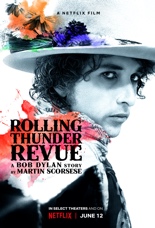


 Is Hollywood out of touch? In 1993, Fay Sommerfield investigated as much for the newsmagazine show she anchored, That Time of the Month. So goes Sex, Shock & Censorship in the 90’s, a made-for-Showtime parody of then-topical targets — mostly among the entertainment industry itself — and presented under the guise of a major network’s then-ubiquitous shows like PrimeTime Live and 20/20. Sommerfield is played by Shelley Long (
Is Hollywood out of touch? In 1993, Fay Sommerfield investigated as much for the newsmagazine show she anchored, That Time of the Month. So goes Sex, Shock & Censorship in the 90’s, a made-for-Showtime parody of then-topical targets — mostly among the entertainment industry itself — and presented under the guise of a major network’s then-ubiquitous shows like PrimeTime Live and 20/20. Sommerfield is played by Shelley Long (
 Otherwise, The $49.95 Club, a mix of televangelism and QVC, holds potential, but never achieves it. Ratman & Frisky channels
Otherwise, The $49.95 Club, a mix of televangelism and QVC, holds potential, but never achieves it. Ratman & Frisky channels 